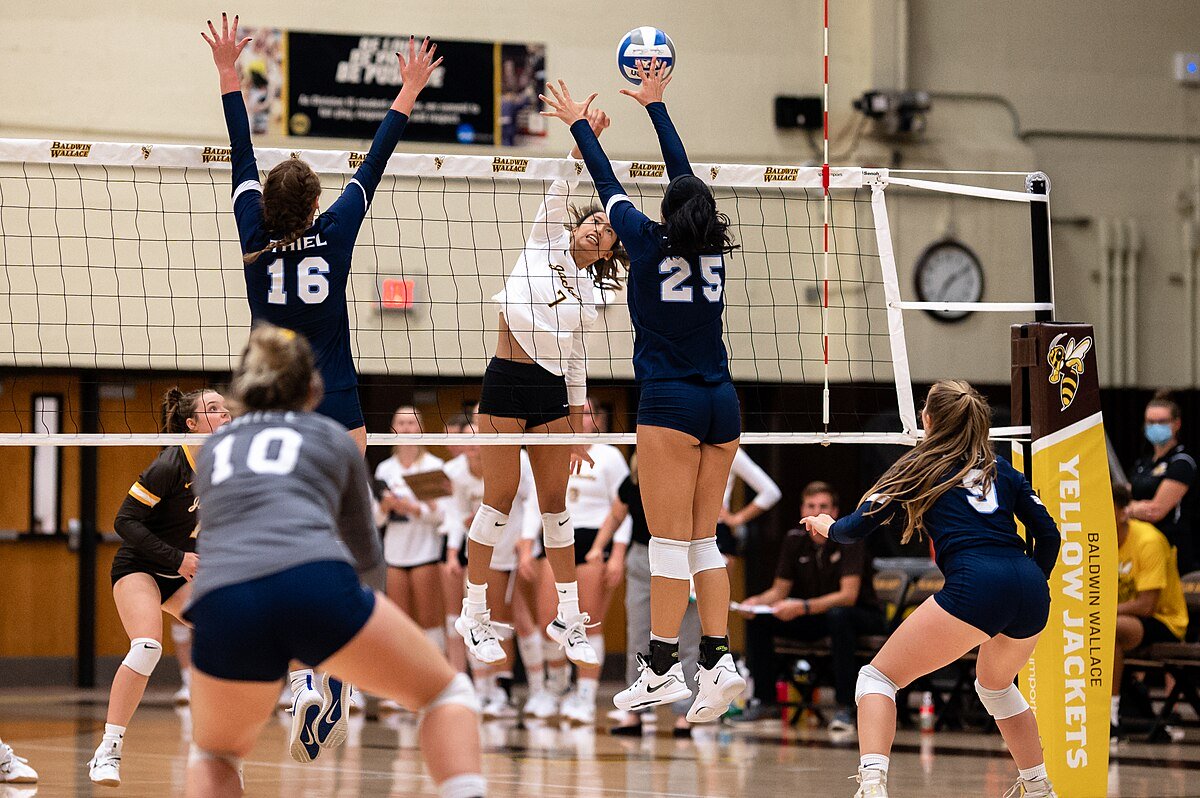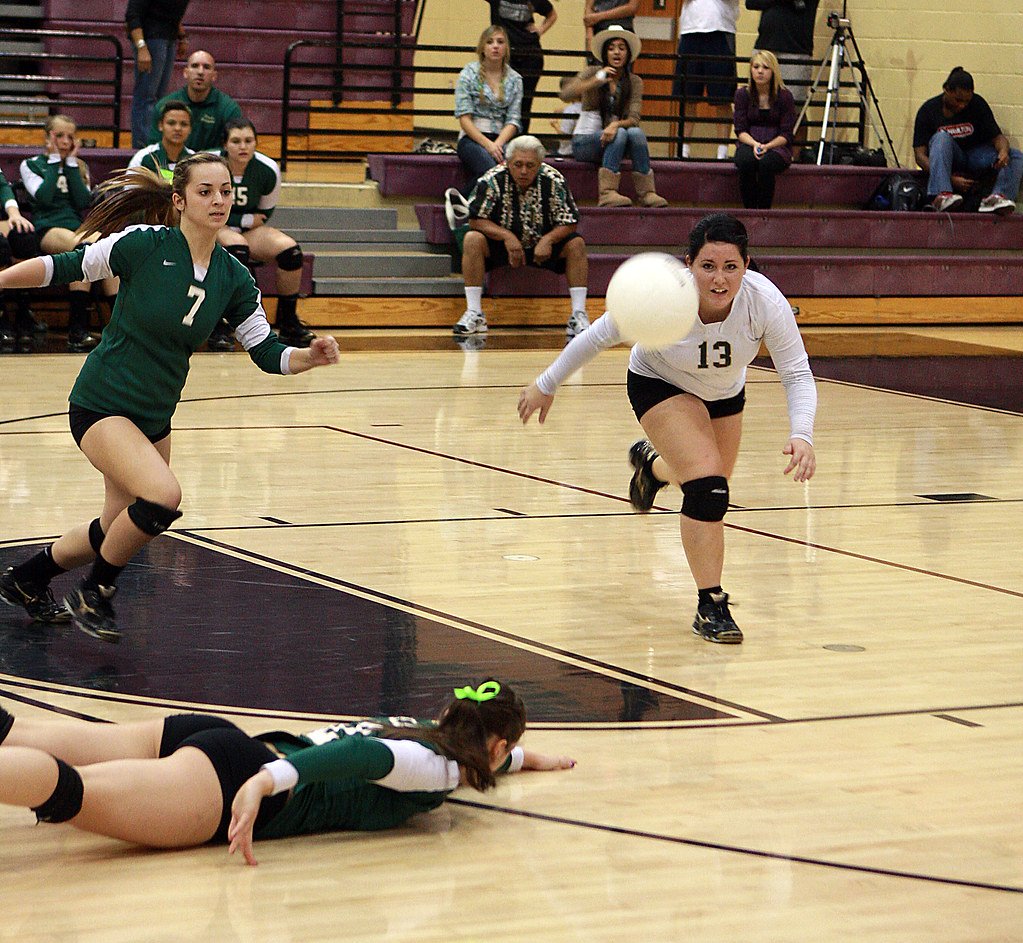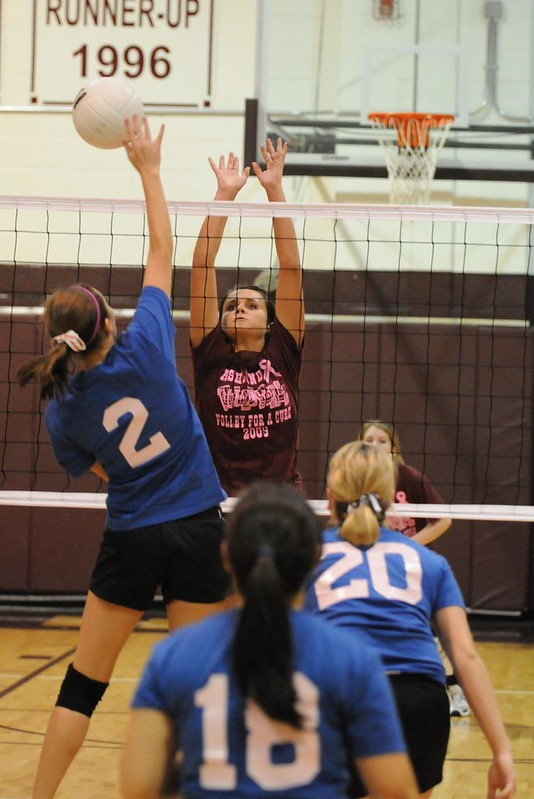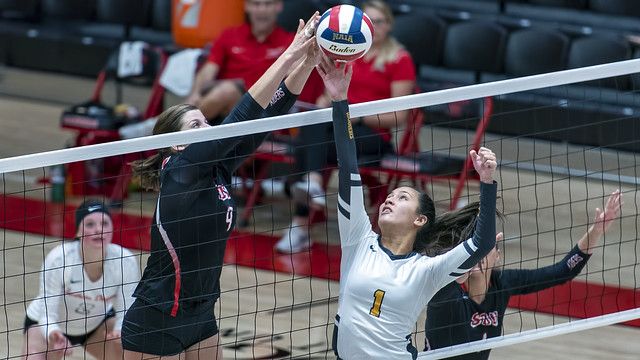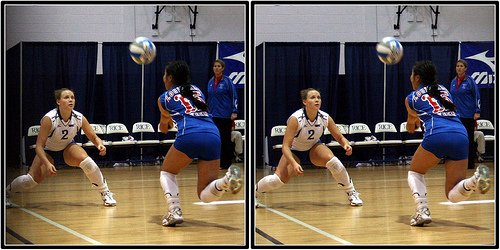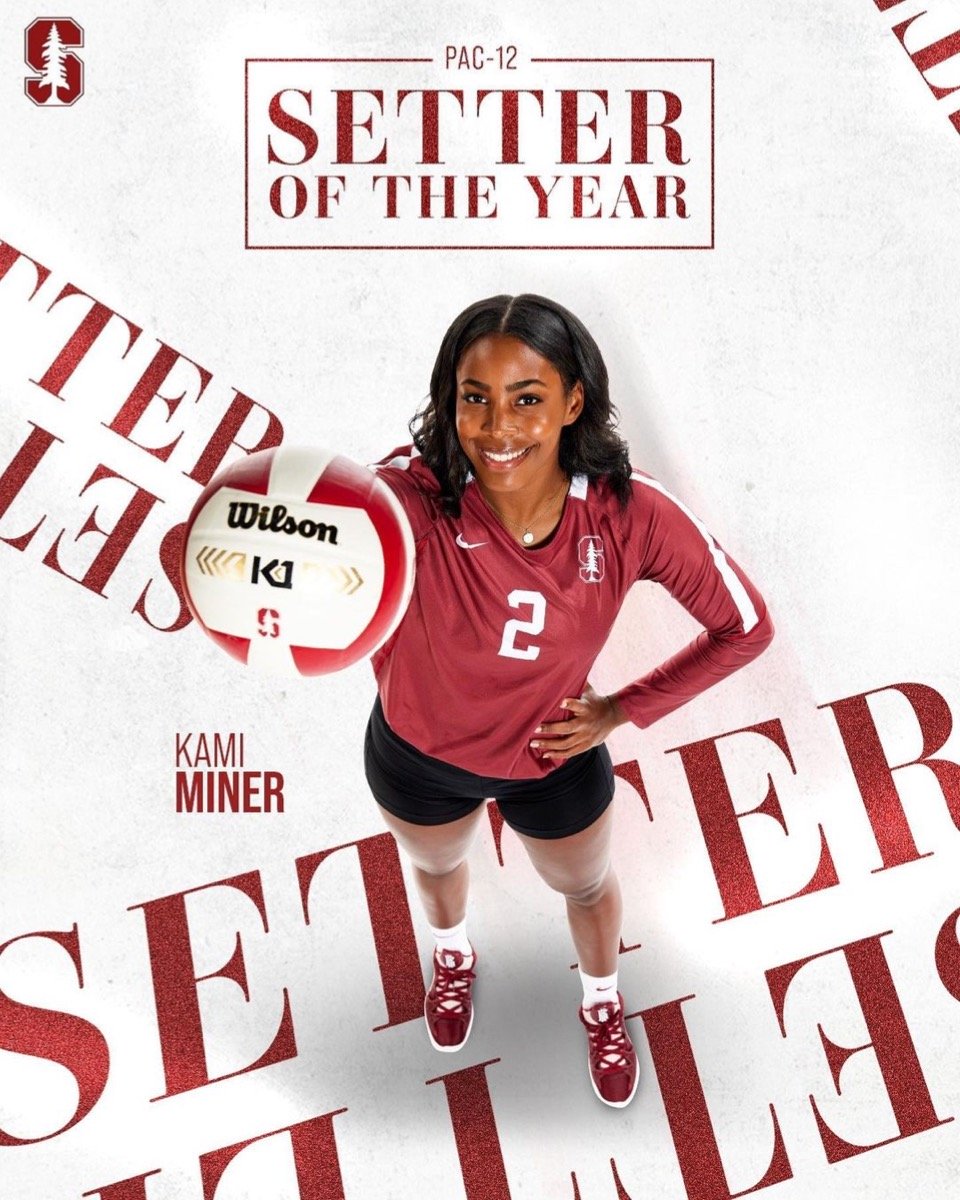- Improve Your Volleyball with Coach April
- Libero Volleyball Jargon For Savvy Moms
- Mom's Guide To Volleyball Defensive Terminology
 Dear Volleyball Mom,
Do You Know What Sets My Private Volleyball Training Apart From Anyone In Vegas?
I invite You to read what my private volleyball training mission says before considering hiring me as a private volleyball coach because I'm not available for everyone.
Dear Volleyball Mom,
Do You Know What Sets My Private Volleyball Training Apart From Anyone In Vegas?
I invite You to read what my private volleyball training mission says before considering hiring me as a private volleyball coach because I'm not available for everyone.Mom's Guide To Volleyball Defensive Terminology And Back Court Lingo
Elevate your volleyball mom game! Polish up your volleyball defensive terminology and court communication terms and impress your kids with your new vocabulary.
As a volleyball mom, you've likely found yourself in the stands, cheering on your child while trying to decipher the complex world of volleyball defense terms.
In my comprehensive guide, I'll break down volleyball defensive terminology in a way that's easy for moms like you to understand, get comfortable using and relating to.
By the end of this article, my intention is for you to have a solid grasp of the language used to describe defensive actions on the court, allowing you to better connect with your child's volleyball experience and even impress other parents with your newfound knowledge!
Essential Volleyball Defensive Terminology: The Basics Every Mom Should Know
When it comes to volleyball defensive terminology, there are a few fundamental terms that every mom should be familiar with.
Let's start with the basics:
The Definition of Dig in Volleyball:
To dig a ball up, a player works to keep an attacked ball by the opposing team off their court floor by extending their arms and hands under the ball, holding them together at the wrists, to deflect it back in the air before it hits the floor.
1. Dig:
This is the act of preventing the ball from hitting the ground after an opponent's attack.
When you hear "Great dig!" from the coach, your child has just made a fantastic defensive play.
Players, like the one's on your child's team will learn how to dig in volleyball by creating a platform with their forearms holding hands together that're used to deflect a spike up in the air to be re-played.
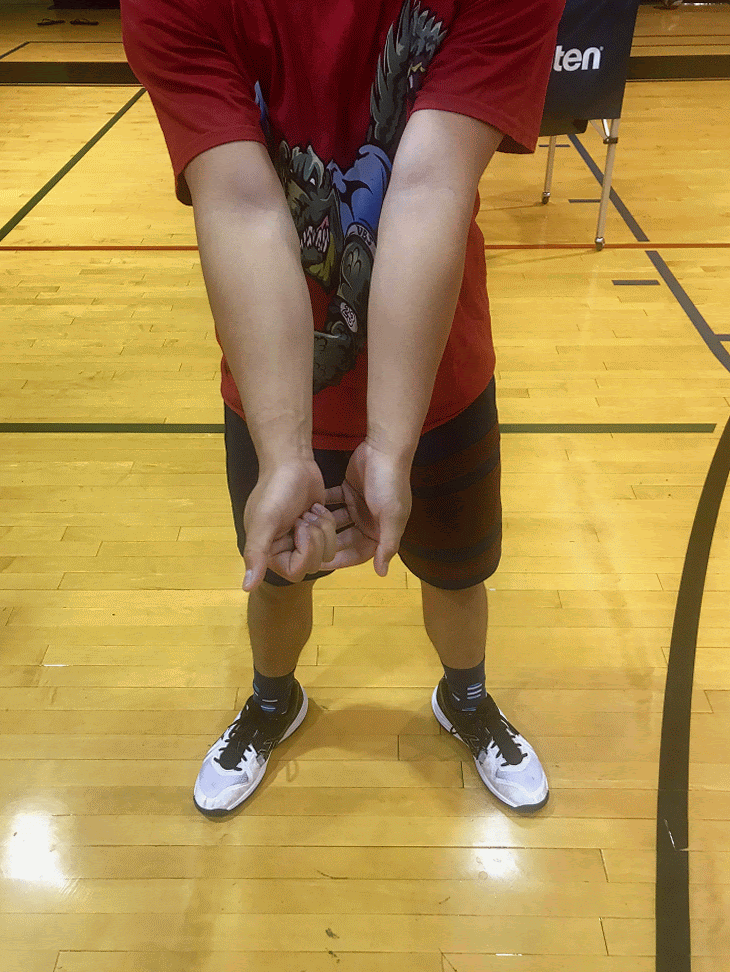 The Passing or Digging Platform: This refers to the flat surface created when a player holds their wrists and forearms together when they're about to pass or dig a ball.
The Passing or Digging Platform: This refers to the flat surface created when a player holds their wrists and forearms together when they're about to pass or dig a ball.2. Platform:
You might hear coaches yelling, "Create a good platform!" or "keep your wrists" together during practice.
3. Ready Position:
This is the athletic stance players adopt when preparing to dig a ball hit over the net by the opposing team.
It involves keeping shoulders over slightly bent knees, body weight leaning slightly forward on the balls of the feet, and arms out in front of the body with palms turned up towards the ceiling.
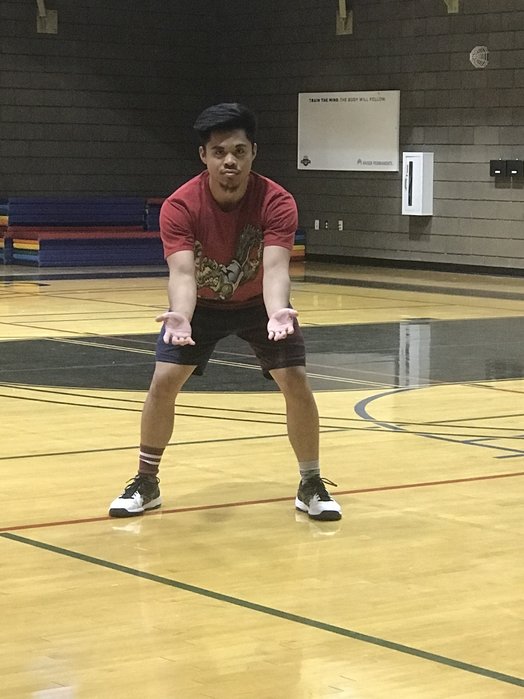 Ready Position: This is the athletic stance players adopt when preparing to dig a ball hit over the net by the opposing team.
Ready Position: This is the athletic stance players adopt when preparing to dig a ball hit over the net by the opposing team.In practice your child will be or should be coached to stay in their "ready position" before and after they play the ball in defense and in serve receive.
Understanding this basic volleyball defensive terminology will help you follow the action and appreciate your child's defensive efforts on the court.
Advanced Volleyball Defensive Terminology: Digging Techniques That'll Impress Your Kids
As your child progresses in volleyball, you'll start hearing more advanced digging terms.
Here are a few to add to your vocabulary:
1. Pancake:
This is when a player slides their hand along the floor, palm down, to get under a ball that's about to hit the ground. It's a last-ditch effort that can be quite exciting to watch!
A defensive technique where a player digs the ball and then rolls to the side to absorb the impact and quickly get back up.
You might hear, "Nice roll!" after a particularly impressive save.
The roll or barrel roll is one of the several acrobatic individual defense techniques a player can use to collapse to the ground after finishing a volleyball dig that takes you off balance.
3. Sprawl:
This involves quickly dropping to the floor with arms outstretched to dig a hard-driven ball. It's a dramatic move that often elicits cheers from the crowd.
One Step Sprawl
Volleyball Digging Terminology
You might also hear some interesting slang terms like
- "six pack" -when a player gets hit directly in the chest by a spike
- "facial" -taking a ball to the face without putting your hands up in defense in time to stop it
- "chester" - when a player doesn't get their hands up in time to stop a spiked ball from hitting their chest
Words like "facial" or "chester" are frequently used volleyball defense terminology that describes ways a player can legally dig a ball using body parts other than their hands.
What does a "facial" have to do with how you dig a volleyball?
One of the slang terms used to describe taking a spike to the face, is a facial which actually is a special kind of 'six pack'.
When I say "special" I'm joking but still, it is similar to a six pack, because a facial describes what happens when a player digs a ball with their face.
- dig lips
This volleyball term "dig lips" or "digging lips" is volleyball jargon referring to a defensive player who digs a hard hitter multiple times in the same play.
Lipping a ball is a strong impressive volleyball dig used to keep the ball off the floor.
Volleyball Defensive Terminology for Blocking: Front Row Defense 101
Blocking is a crucial part of volleyball defense, and it comes with its own set of terms:
1. Seal The Net:
This refers to the action of the blocker pressing their arms over the net to prevent the ball from coming across the net into the defense's court .
You might hear coaches yelling, "Seal the net!"
2. Penetrate The Net:
When blockers reach their arms elbows and hands over the net to stop the ball from crossing into their court with the intent of pushing the ball back into the hitter's court before the blocker's feet hit the floor from their block jump.
Good penetration can make it difficult for attackers to find open court.
3. Stuff Block:
This exciting play occurs when a blocker times their block jump so well that they send the ball straight down into the opponent's court for a point.
It's definitely something to cheer about!
Understanding these blocking terms will help you appreciate the strategy involved in front-row defense.
Volleyball Defensive Terminology in Team Strategy: The Big Picture
Volleyball defense isn't just about individual skills; it's also about team defense strategy.
Here are some terms related to defensive formations:
1. Perimeter Defense:
A defensive strategy where players position themselves around the edges of the court in defense.
2. Rotational Defense:
A defensive system where players move or "rotate" to different positions to cover the four corners of the court against a team that continuously hits the ball to the deep corners as the play develops.
3. Commit Block:
A strategy where the middle blocker commits to blocking the opponent's middle hitter, regardless of where the set goes.
Understanding these strategic terms will give you insight into the complex world of volleyball defensive planning.
Communication-Related Volleyball Defensive Terminology: Teamwork in Action
Effective communication is crucial in volleyball defense.
Here are some common terms you'll hear players shouting during a game:
1. "Mine!":
This is called out by a player claiming responsibility for playing the ball.
2. "Help!":
A call for assistance from teammates, often used when a player is out of position.
3. "Free!":
This indicates that the opponent's attack is not very aggressive and a ball has been sent over to your court, not as a spiked hard driven ball but an easy passed ball over the net allowing the team to easily set up their offense.
Conclusion
It allows you to better appreciate your child's efforts, understand the coach's instructions, and even offer more specific encouragement should your volleyball player ever need or ask for it.
Remember, learning these terms takes time, so don't be afraid to ask questions or look things up as you go along.
By showing interest in the language of the game, you're not only supporting your child's volleyball journey but also deepening your connection to their passion.
Quiz Time! Test Your Skills: Interactive Volleyball Quiz Section
Test your knowledge on the "Definition of Dig in Volleyball" with this 12-question quiz!
Sharpen your understanding of the dig technique and related terms, and see how well you have grasped the topic.
1. What does 'Dig' in volleyball mean?
a) Serve the ball
b) Spike the ball
c) Keep the ball off the floor
2. True or False: To 'Dig' a ball, one needs to stay in a high athletic stance?
3. Which body part should primarily come into contact with the ball during a 'Dig'?
a) Hands
b) Feet
c) Forearms
4. Which of the following is NOT a term related to digging?
a) Six Pack
b) Hitter
c) Pancake
5. What does the term 'tagged' mean in relation to defense in volleyball?
a) Catching the ball
b) Blocking the ball
c) Being hit by the ball
6. What is a 'facial' in volleyball slang?
a) Digging a ball with hands
b) Getting hit in the face with the ball
c) Spiking the ball
7. True or False: 'Chester' is a slang term related to digging technique in volleyball?
8. Which slang term describes a player who digs a hard hitter multiple times in the same play?
a) Pepper
b) Dig lips
c) Volley
9. How do you create a platform with your body for digging in Volleyball?
a) By extending arms and joining hands
b) By jumping high
c) By standing with legs apart
10. True or False: 'Double Hit' means hitting the ball twice consecutively in a single play?
11. What describes the slang term 'six pack' in volleyball?
a) Serving six times consistently
b) A strong, impressive volleyball dig
c) Taking a spike to the face
12. How does a player perform a 'lip' in volleyball?
a) By hitting the ball with the corner of the mouth
b) By deflecting the ball with the forearm
c) By digging a hard hitter multiple times
Quiz Answer Key:
1: c - Keep the ball off the floor
2: False
3: c - Forearms
4: b - Hitter
5: c - Being hit by the ball
6: b - Getting hit in the face with the ball
7: True
8: b - Dig lips
9: a - By extending arms and joining hands
10: True
11: c - Taking a spike to the face
12: c - By digging a hard hitter multiple times
Remember, whether you answered all correctly or missed a few, the most important thing is that you're learning and having fun!
Share this quiz with your friends and teammates, and see who knows the most about volleyball digs!
Keep practicing and keep digging deeper into the fascinating world of volleyball.
Do You Follow Me on Pinterest?
 Private or semiprivate volleyball indoor/sand lessons are an excellent way for young Las Vegas high school volleyball players to quickly improve their individual skills through a private or semi-private coaching experience.
These lessons are conducted by former pro volleyball player, former USA Volleyball High Performance instructor and Evaluator and Tstreet Vegas 18s head Coach April Chapple on a weekly basis.
Sign up now!
Private or semiprivate volleyball indoor/sand lessons are an excellent way for young Las Vegas high school volleyball players to quickly improve their individual skills through a private or semi-private coaching experience.
These lessons are conducted by former pro volleyball player, former USA Volleyball High Performance instructor and Evaluator and Tstreet Vegas 18s head Coach April Chapple on a weekly basis.
Sign up now!Follow me on Pinterest Volleybragswag to improve your game even faster!
I share alot of individual, partner and easy-to-do volleyball serving drills we do in class with my followers.
Many of these volleyball practice drills you can do at home by yourself or try at your next practice with your teammates.
If you're a B team or JV player trying to make varsity next year...your goal should be to complete 1000 reps a day of at least three of the basic skills on your own...volleyball passing, serving and setting should be at the top of the list.
SUSCRIBE
To My Email Newsletter Below!
From Lady Vol to Legend: Coach April Produces Powerful Passionate Players...is that you?
What Are You Looking For?

Hi there!
Thanks for stopping by. Hope you learned something today that will help you reach your volleyball goals.
Be sure to subscribe to my email newsletter so you can learn more each week!
Stay strong! Stay motivated!
-Coach April

SUSCRIBE
to my email newsletter below!
Vegas Volleyball's Unsung Heroes: Celebrating Moms with Peace Love Volleyball Shirts
Ready to energize your volleyball mom journey?
Subscribe to my 'Producing Powerful Passionate Peaceful Players' email list above on ImproveYourVolley.com.
You'll receive energy-boosting tips, exclusive insights from me, Coach April Chapple on maintaining momentum in volleyball.
Let's power up the Vegas volleyball scene together!
Recent Articles
-
Coach April's Peace Love Volleyball Phrases For T-Shirts Honor Moms
Apr 13, 25 03:49 PM
Whether on the court or in everyday life, April Chapple's volleyball phrases for t-shirts are serving inspiration for players and moms, one message at a time. -
What Is A Setter In Volleyball? My Setting Guide With Answers To FAQs
Apr 13, 25 12:36 AM
Learn what a volleyball setter is from a champion coach. Get expert insights, training tips, and proven strategies for volleyball's most strategic position. -
Setter Position in Volleyball: My Expert Guide & Setting Training Tips
Apr 12, 25 04:11 AM
Learn the setter position in volleyball from an expert coach. Master essential techniques, court positioning, and winning strategies to become a great setter.
